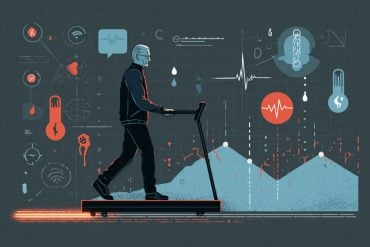Research conducted at the University of Warwick indicates that chronic pain sufferers could benefit from therapy to help them sleep better.
The University of Warwick academics found that cognitive behavioural therapies (CBT) were either moderately or strongly effective in tackling insomnia in patients with long-term pain. They also discovered that chronic pain sufferers didn’t just benefit from improved sleep but also experienced a wider positive impact on pain, fatigue and depression. However they also concluded that therapies only worked when delivered in person.
The study has been published in the journal Sleep. Dr Nicole Tang, from the University’s Department of Psychology who led the research said: “Poor sleep is a potential cause of ill health and previous studies suggest it can lead to obesity, diabetes, stroke, coronary heart disease – even death. Insomnia can also increase the risk of depression, anxiety and substance misuse. It is also a major problem for those suffering pain that lasts longer than three to six months and that is why we looked at this group.
“This study is particularly important because the use of drugs to treat insomnia is not recommended over a long period of time therefore the condition needs to be addressed using a non-pharmacological treatment. We believe that our results will be of particular interest to primary care physicians and allied health professionals who are taking up an increasingly important role in preventing and managing long-term conditions.”

The researchers from the University’s Department of Psychology and Warwick Medical School ran the first meta-analysis of the effects of non-drug treatments for sleeplessness, examining the experiences of more than a thousand chronic pain sufferers.
They examined 72 studies of a total of 1,066 patients aged 45-61 who suffered from insomnia and experienced pain caused by a variety of ailments such as long-term cancer, headaches and arthritis.
Treatments evaluated covered a variety of approaches. Most popular intervention strategies included psycho-education about sleep hygiene (good sleeping habits such as a regular sleeping pattern), stimulus control, sleep restriction, and cognitive therapy.
In addition to highlighting the positive effect of CBT on insomnia the researchers identified a mild to moderate decrease in pain immediately after therapy. The researchers also noted that improved sleep resulted in a decrease in depression following treatment and at follow-ups up to 12 months. The research team believes this highlights the value of treating insomnia which exists with chronic pain as early as possible.
However when delivered electronically – either over the phone or via the internet – the therapies were found to be less effective. Dr Tang said: “We found little evidence that using therapies delivered either by phone or computer benefitted insomniacs. The jury is still out on the effectiveness of using automated sleep treatments. We found that, at the moment at least, delivering therapies personally had the most positive effect on sleeplessness.”
The team concluded that more research is now required to establish if it is feasible and cost-effective over the long-term to treat patients using CBT.
Source: Nicola Jones – University of Warwick
Image Source: The image is in the public domain
Original Research: Abstract for “Nonpharmacological Treatments of Insomnia for Long-Term Painful Conditions: A Systematic Review and Meta-analysis of Patient-Reported Outcomes in Randomized Controlled Trials” by Nicole K.Y. Tang, DPhil; S. Tanya Lereya, PhD; Hayley Boulton, PhD; Michelle A. Miller, PhD; Dieter Wolke, PhD; and Francesco P. Cappuccio, MD, FRCP in Sleep. Published online October 2015 doi:10.5665/sleep.5158
Abstract
Nonpharmacological Treatments of Insomnia for Long-Term Painful Conditions: A Systematic Review and Meta-analysis of Patient-Reported Outcomes in Randomized Controlled Trials
Study Objectives:
Insomnia is a debilitating comorbidity of chronic pain. This study evaluated the effect of nonpharmacological sleep treatments on patient-reported sleep quality, pain, and well-being in people with long-term cancer and non-cancer (e.g., back pain, arthritis, fibromyalgia) pain conditions.
Design:
We systematically searched Cochrane CENTRAL, MEDLINE, Embase, and PsychINFO for relevant studies. Search period was set to inception of these databases to March 2014. Studies were included if they were: original randomized controlled trials (RCTs); testing a nonpharmacological intervention; that targets sleep; in adults; with painful health conditions; that has a control group; includes a measure of sleep quality; and at least one other health and well-being outcome.
Measurement and Findings:
Means and standard deviations of sleep quality, pain, fatigue, depression, anxiety, physical and psychological functioning were extracted for the sleep treatment and control groups at baseline, posttreatment and final follow-up. Methodological details concerning the treatment, participants, and study design were abstracted to guide heterogeneity and subgroup analyses. Eleven RCTs involving 1,066 participants (mean age 45–61 years) met the criteria for the meta-analysis. There was no systematic evidence of publication bias. Nonpharmacological sleep treatments in chronic pain patients were associated with a large improvement in sleep quality (standardized mean difference = 0.78, 95% Confidence Interval [0.42, 1.13]; P < 0.001), small reduction in pain (0.18 [0, 0.36] P < 0.05), and moderate improvement in fatigue (0.38 [0.08, 0.69]; P < 0.01) at posttreatment. The effects on sleep quality and fatigue were maintained at follow-up (up to 1 year) when a moderate reduction in depression (0.31, [0.09, 0.53]; P < 0.01) was also observed. Both cancer and non-cancer pain patients benefited from nonpharmacological sleep treatments. Face-to-face treatments achieved better outcomes than those delivered over the phone/internet.
Conclusions:
Although the body of evidence was small, nonpharmacological sleep interventions may represent a fruitful avenue for optimizing treatment outcomes in patients with chronic pain.
“Nonpharmacological Treatments of Insomnia for Long-Term Painful Conditions: A Systematic Review and Meta-analysis of Patient-Reported Outcomes in Randomized Controlled Trials” by Nicole K.Y. Tang, DPhil; S. Tanya Lereya, PhD; Hayley Boulton, PhD; Michelle A. Miller, PhD; Dieter Wolke, PhD; and Francesco P. Cappuccio, MD, FRCP in Sleep. Published online October 2015 doi:10.5665/sleep.5158






